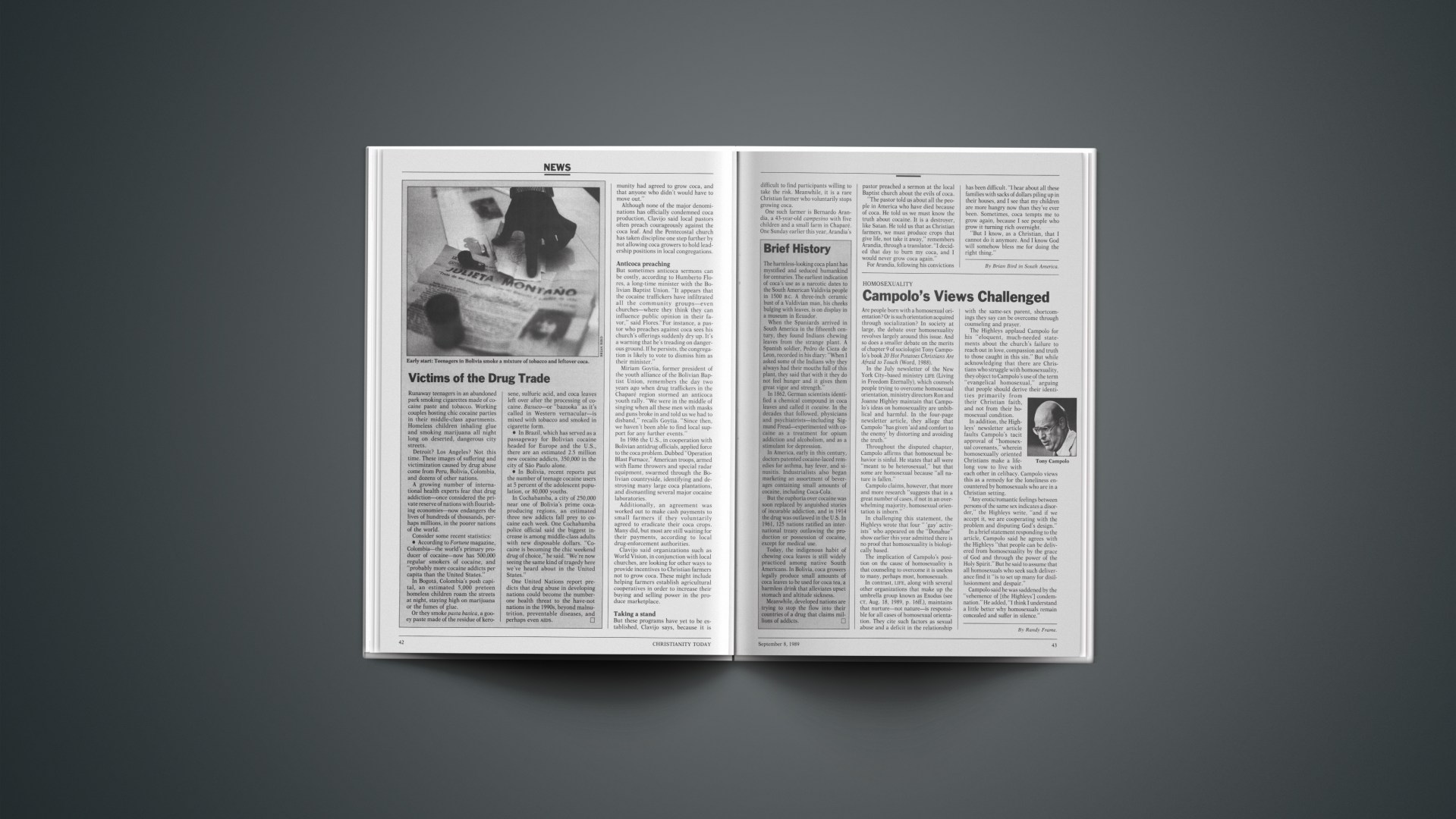Are people born with a homosexual orientation? Or is such orientation acquired through socialization? In society at large, the debate over homosexuality revolves largely around this issue. And so does a smaller debate on the merits of chapter 9 of sociologist Tony Campolo’s book 20 Hot Potatoes Christians Are Afraid to Touch (Word, 1988).
In the July newsletter of the New York City-based ministry LIFE (Living in Freedom Eternally), which counsels people trying to overcome homosexual orientation, ministry directors Ron and Joanne Highley maintain that Campolo’s ideas on homosexuality are unbiblical and harmful. In the four-page newsletter article, they allege that Campolo “has given ‘aid and comfort to the enemy’ by distorting and avoiding the truth.”
Throughout the disputed chapter, Campolo affirms that homosexual behavior is sinful. He states that all were “meant to be heterosexual,” but that some are homosexual because “all nature is fallen.”
Campolo claims, however, that more and more research “suggests that in a great number of cases, if not in an overwhelming majority, homosexual orientation is inborn.”
In challenging this statement, the Highleys wrote that four “ ‘gay’ activists” who appeared on the “Donahue” show earlier this year admitted there is no proof that homosexuality is biologically based.
The implication of Campolo’s position on the cause of homosexuality is that counseling to overcome it is useless to many, perhaps most, homosexuals.
In contrast, LIFE, along with several other organizations that make up the umbrella group known as Exodus (see CT, Aug. 18, 1989, p. 16ff.), maintains that nurture—not nature—is responsible for all cases of homosexual orientation. They cite such factors as sexual abuse and a deficit in the relationship with the same-sex parent, shortcomings they say can be overcome through counseling and prayer.
The Highleys applaud Campolo for his “eloquent, much-needed statements about the church’s failure to reach out in love, compassion and truth to those caught in this sin.” But while acknowledging that there are Christians who struggle with homosexuality, they object to Campolo’s use of the term “evangelical homosexual,” arguing that people should derive their identities primarily from their Christian faith, and not from their homosexual condition.
In addition, the Highleys’ newsletter article faults Campolo’s tacit approval of “homosexual covenants,” wherein homosexually oriented Christians make a lifelong vow to live with each other in celibacy. Campolo views this as a remedy for the loneliness encountered by homosexuals who are in a Christian setting.
“Any erotic/romantic feelings between persons of the same sex indicates a disorder,” the Highleys write, “and if we accept it, we are cooperating with the problem and disputing God’s design.”
In a brief statement responding to the article, Campolo said he agrees with the Highleys “that people can be delivered from homosexuality by the grace of God and through the power of the Holy Spirit.” But he said to assume that all homosexuals who seek such deliverance find it “is to set up many for disillusionment and despair.”
Campolo said he was saddened by the “vehemence of [the Highleys’] condemnation.” He added, “I think I understand a little better why homosexuals remain concealed and suffer in silence.”
By Randy Frame.










